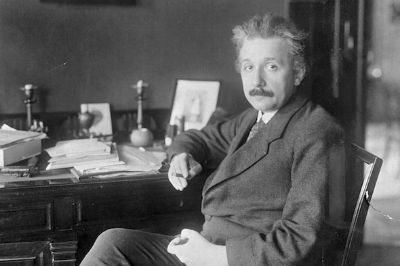Theoretical Physics Is Pointless without Experimental Tests
(Ed. Earlier this year we wrote about the sensationalist claims often made by investigators and journalists – especially of an anti-religious bent – and called for a return to stricter verification standards in the quest for information. This article highlights the issue.)
Scientific American
By Abraham Loeb on August 10, 2018
 Einstein made great discoveries based on pure thought, but he also made mistakes. Only experiment and observation could determine which was which. Credit: Getty Images
Einstein made great discoveries based on pure thought, but he also made mistakes. Only experiment and observation could determine which was which. Credit: Getty ImagesA new debate has recently emerged as to whether string theory admits even a single rigorous solution that includes a cosmological constant, as we find observationally in the real universe. The debate follows on a period of several decades during which the mathematical richness of the theory has been advanced considerably but with very limited connection to experimental testing. This experience inspired a new culture of doing theoretical physics without the need for experimental verification.
Given our academic reward system of grades, promotions and prizes, we sometimes forget that physics is a learning experience about nature rather than an arena for demonstrating our intellectual power. As students of experience, we should be allowed to make mistakes and correct our prejudices.
Albert Einstein is admired for pioneering the use of thought experiments as a tool for unraveling the truth about the physical reality. But we should keep in mind that he was wrong about the fundamental nature of quantum mechanics as well as the existence of gravitational waves and black holes – which he dismissed late in his career, and which were both confirmed observationally by LIGO in 2015, exactly a century after he formulated the general theory of relativity.